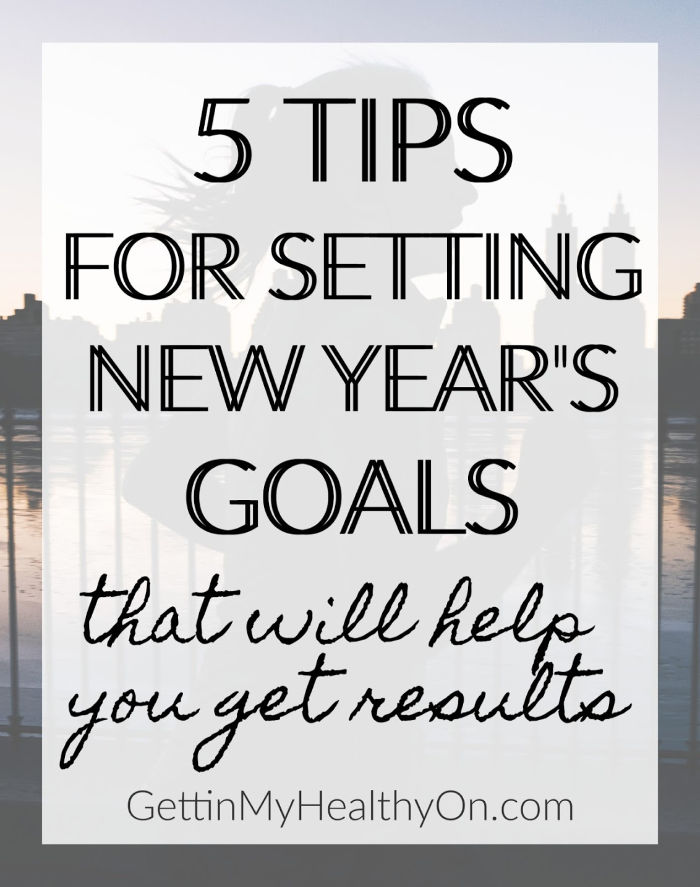I never used to set New Year’s goals, resolutions, aspirations—whatever you want to call them—because basically: if you don’t set them, you can’t fail at reaching them. Plus, I’ve just never felt overly driven to transform my lifestyle. About 5 or so years ago, though, I decided to start making goals for myself because… why not choose to improve myself in one way or another?
While I’ve never had any life-changing New Year’s goals, there have been smaller ones that made a lasting impact on my health and well-being—goals that have turned into good habits I still practice. (My 12 books I read in 2019 post is evidence of that!)
I was originally going to post my annual New Year’s goals for 2020 today, but I realized I had a lot more to say than just listing what I want to accomplish this year. Over the past few years, I’ve refined my goal-making (and -following) process based on what actually helps me grow.
I don’t want goals I’ll “reach” without even trying, but I’m also not about setting goals that aren’t realistic for me. I just want to make small adjustments to my lifestyle that will aid in my overall well-being and quality of life. And so each year, I create a small collection of goals to work on throughout the year.
Ever since making my Goals for 2019 and Goals for 2018, I’ve learned a lot about what works and doesn’t work for me. After all, if you’re not making goals that will actually help you, then they’re not doing any good anyways. I’ve put together 5 lessons I’ve learned since starting this New Year’s Goals thing. I hope they help you craft helpful goals for yourself, too!

1. Be specific about your goals.
If you just say “get healthier this year,” how do you go about that and measure your progress? While there’s nothing wrong with that goal, it makes a huge difference if you’re specific about what exactly you’re trying to achieve. For example, I said I want to lose 2-4% body fat last year, which I was able to quantify each month. Specific goals help you take action and stay focused.
2. Don’t make too many goals.
I’ve found 4-6 goals to be a good max for me (which usually involves a couple bigger ones and mostly smaller ones), but this may vary based on what your goals are and how determined you are. While making a big list of goals may be motivating at first—because there’s so much you may feel inspired to work on—I’ve found if there are too many goals, it gets easy to brush certain ones off. Put a mix of big and small goals on your list, and you should have an easier time staying on track.
3. Make realistic challenges for yourself.
If you have overly ambitious goals and struggle to make progress, you may feel defeated and eventually give up. While this is obviously not always the case, I prefer to create goals that I know will take hard work and dedication to reach—without destroying my motivation. Also? Don’t make your goals too easy either. I had one last year (eat 1-2 Mediterranean-inspired meals each day) that seemed like a good idea at the time, but it barely challenged me since my go-to breakfast (oatmeal with fresh fruit) already accomplished that goal. The point of goals is to help you grow, so make sure you’re willing (and able) to do the work so you can benefit.
4. Log progress if you’re prone to losing interest.
I’ve been logging my workouts for about seven years now, and there’s a reason it’s my #1 tip for keeping up with a workout schedule. Logging progress makes a huge difference, whether it’s for fitness or another positive habit. This is another reason why creating specific goals is so important—you actually can document whether you’re on track. Last year I made a spreadsheet for myself to log my goals each day/week/month. Without it, I don’t think I could have kept my focus so consistently all year. Whether you use one comprehensive log sheet, or use multiple smaller versions, do whatever works for you! And don’t knock it until you try it.
5. Write your goals down.
Thinking of what you want to accomplish is one thing, but actually seeing what you need to work on can be surprisingly helpful. For me it feels more official, like they’re suddenly written in stone and I am from there on out obligated to start making them happen. And if you learn in the middle of the year that one of your goals wasn’t all you thought it would be, then change it! They aren’t actually set in stone, but what matters is the fact that they have a positive change on something you want to better about yourself.
January is the perfect time to think about what you want to accomplish for the rest of the year. It’s a refreshing reset time, when we can say sayonara to the last year and look forward to what the coming months will hold. Good luck to you in 2020, and I wish you happiness and good health!
Do you usually set New Year’s goals/resolutions?
What’s a goal you have this year for yourself?




